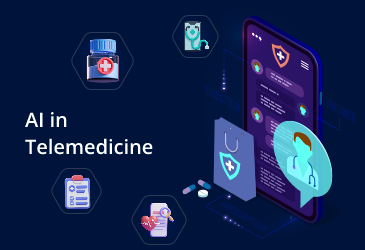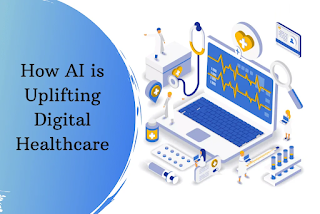INTRODUCTION
Introduction to AI in Advanced Health
Predictive Analytics and Early Diagnosis
Early Discovery of Diseases
Predicting Wellbeing Risks
Personalized Treatment Plans
Precision Medicine
AI algorithms analyze genetic information, lifestyle data, and treatment responses to recommend personalized therapies. For example, in oncology, AI can help identify the most effective chemotherapy drugs for a patient based on their genetic profile. This approach enhances treatment efficacy and reduces adverse effects.
Adaptive Treatment Monitoring
AI-driven platforms continuously monitor patient data, adjusting treatment plans in real-time. For instance, AI can track a diabetic patient's glucose levels and automatically adjust insulin doses. This adaptive approach ensures optimal management of chronic conditions.
Enhancing Patient Engagement and Adherence
Patient engagement and adherence to treatment plans are critical for successful health outcomes. AI technologies play a vital role in improving these aspects through personalized communication and monitoring.
Chatbots and Virtual Health Assistants
AI-powered chatbots provide 24/7 assistance, answering patient queries, and offering health advice. These virtual assistants can remind patients to take medications, schedule appointments, and provide guidance on managing chronic conditions. The constant support helps patients stay engaged with their treatment plans.
Personalized Reminders and Nudges
AI platforms send personalized reminders to patients, encouraging them to adhere to their medication schedules and lifestyle changes. For example, an AI system might remind a patient to take their blood pressure medication and offer tips on maintaining a heart-healthy diet. These personalized nudges improve adherence and health outcomes.
Streamlining Healthcare Operations
AI not only enhances patient care but also streamlines various healthcare operations, leading to increased efficiency and cost savings.
Optimizing Resource Allocation
AI algorithms analyze hospital data to predict patient admission rates, optimize staff schedules, and manage inventory. For example, AI can forecast flu outbreaks and ensure adequate staffing and resources in emergency departments. This proactive approach reduces wait times and improves patient care.
Automating Administrative Tasks
AI-powered tools automate repetitive administrative tasks, such as appointment scheduling, billing, and documentation. This automation frees up healthcare professionals' time, allowing them to focus on patient care. Additionally, it reduces administrative errors and enhances operational efficiency.
AI in Telemedicine and Remote Monitoring
The COVID-19 pandemic has accelerated the adoption of telemedicine, and AI plays a crucial role in this transformation. AI-powered telemedicine platforms offer advanced capabilities for remote patient monitoring and virtual consultations.

Farther Understanding Monitoring
AI-driven remote monitoring systems collect and analyze patient data from wearable devices and home sensors. For instance, AI can monitor a patient's heart rate, sleep patterns, and physical activity, alerting healthcare providers to any irregularities. This continuous monitoring enables early intervention and reduces hospital readmissions.
Virtual Consultations
AI enhances virtual consultations by providing real-time data analysis and decision support. During a telemedicine appointment, AI algorithms can analyze patient symptoms and medical history, assisting healthcare providers in making accurate diagnoses. This technology also enables remote access to specialist consultations, improving healthcare accessibility.
Advancing Medical Research
Medical AI research by accelerating data analysis and discovery processes. Researchers use AI to uncover new insights, develop novel treatments, and advance medical knowledge.
Drug Discovery and Development
AI algorithms analyze vast datasets to identify potential drug candidates and predict their effectiveness. This accelerates the drug discovery process and reduces costs. For example, AI has been used to identify new uses for existing drugs, expediting the development of treatments for conditions like COVID-19.
Genomic Research
AI is instrumental in analyzing genomic data, identifying genetic mutations, and understanding their implications. This research is crucial for developing targeted therapies and advancing personalized medicine. AI-driven genomic analysis has led to breakthroughs in cancer treatment and rare disease diagnosis.
Ethical Considerations and Challenges
While AI offers numerous benefits in digital health, it also raises ethical considerations and challenges that must be addressed.
Data Security and Privacy
AI systems require access to vast amounts of personal health data, raising concerns about security and privacy. Ensuring robust data security measures and compliance with regulations like HIPAA (Health Insurance Portability and Accountability Act) is essential to maintain patient trust.
Bias and Fairness
AI algorithms can inherit biases present in the training data, leading to biased outcomes. For example, if an AI system is trained predominantly on data from a specific demographic, it may not perform well for other groups. Addressing these biases and ensuring fairness in AI applications is crucial.
Transparency and Accountability
AI-driven decisions must be transparent and explainable, especially in healthcare. Patients and providers need to understand how AI algorithms arrive at their conclusions. Establishing accountability for AI-driven decisions is also important to ensure patient safety and trust.
The Future of AI in Digital Health
The integration of AI in digital health is still in its early stages, and the future holds immense potential for further advancements. Here are some trends and future directions for AI in digital health:
Integration with Wearable Technology
As wearable devices become more advanced, AI will play a crucial role in analyzing data from these devices. Future AI applications will provide even more personalized health experiences and real-time interventions based on continuous monitoring.
Enhanced Interoperability
Efforts to improve interoperability between different health systems and platforms will enable seamless data sharing and collaboration. AI will leverage this integrated data to provide comprehensive and coordinated care.







0 Comments